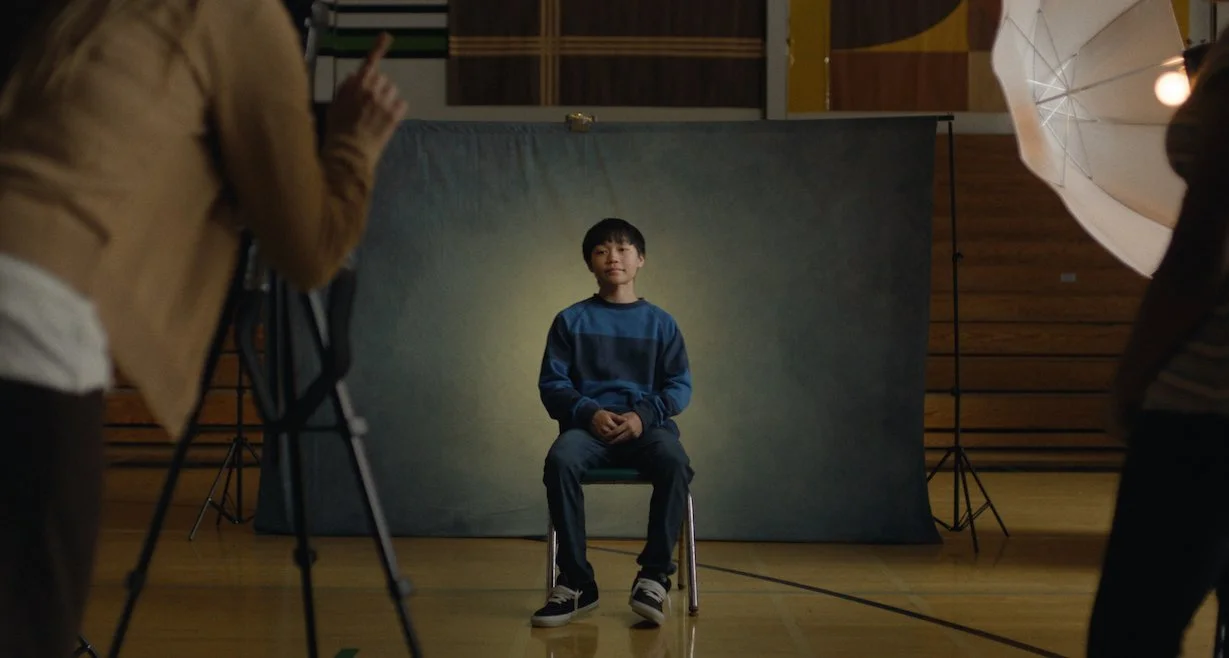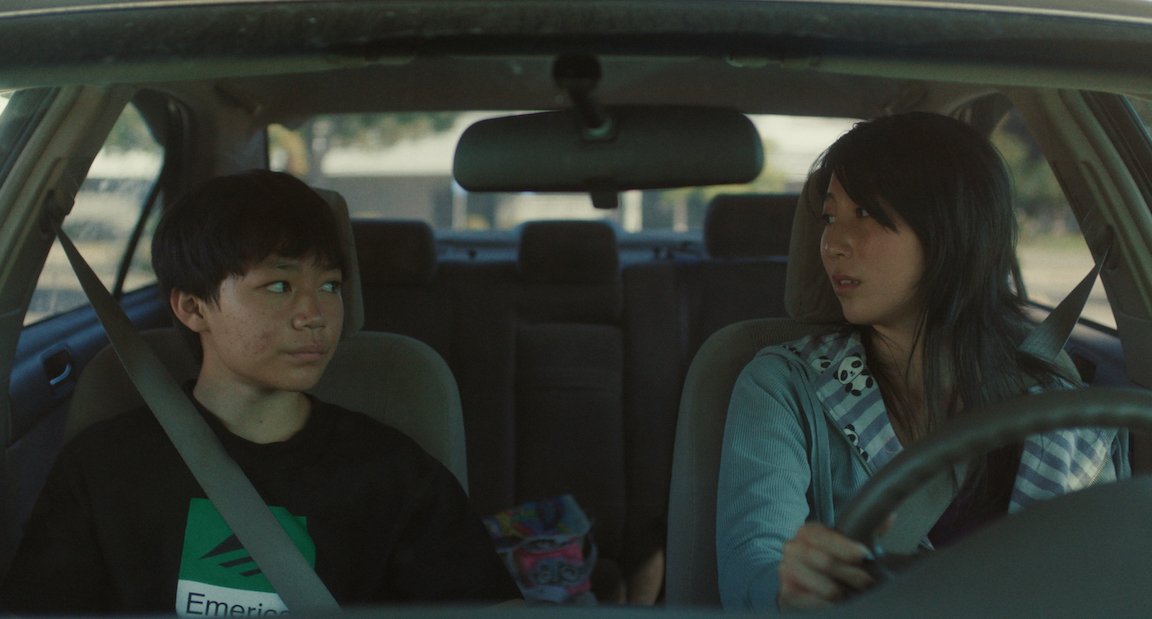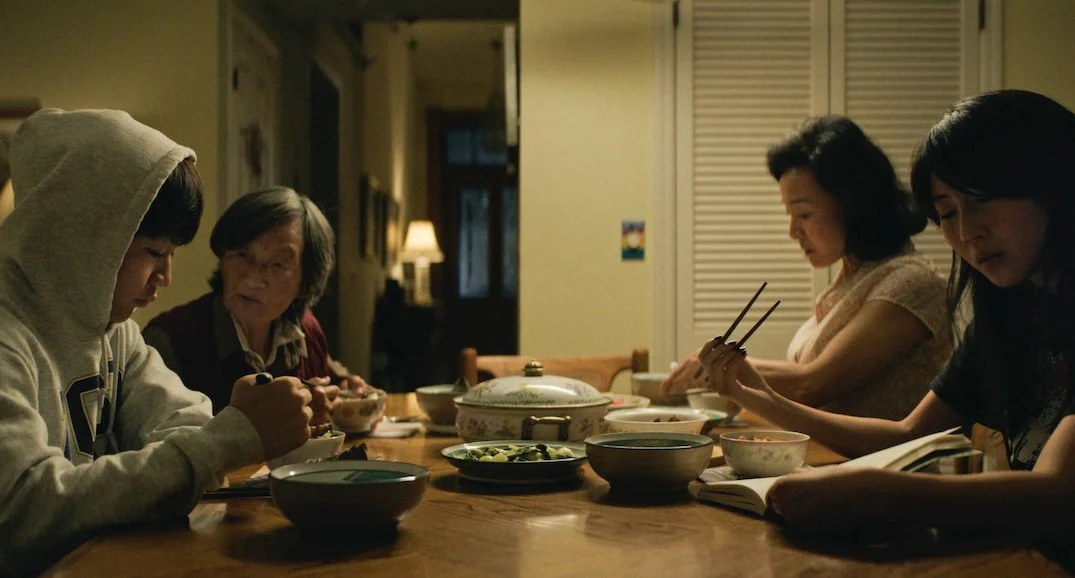Room to Grow
Documentarian Sean Wang mines adolescence for a coming-of-age tale that goes above and beyond in making teens total dicks.
Didi
Director: Sean Wang • Writer: Sean Wang
Starring: Izaac Wang, Joan Chen, Chang Li Hua, Shirley Chen
USA • 1hr 34mins
Opens Hong Kong Oct 17 • IIB
Grade: B
There’s an awful lot going on in first time feature director Sean Wang’s Didi. Too much in fact. To add insult to injury the film is one of those Sundance (painfully so) so-called gems that get anyone less enamoured with the film than Sundance programmers labelled curmudgeonly, old or intolerant. In Didi, Izaac Wang (Good Boys) stars as Sean’s avatar Chris Wang, a 13-year-old wannabe skate vlogger in Fremont (near Oakland) in the summer of 2008 before high school starts. Chris, whose friends call him Wang Wang, hangs out with best mates Fahad (low-key awesome Raul Dial) and Soup (Aaron Chang), blowing up mailboxes, discovering girls and generally being 13. Chris’s home, however, is a warzone, with mom Taiwanese transplant Chungsing (Joan Chen) trying to corral the unruly son and her howling, UCSD-bound daughter Vivian (Shirley Chen, Quiz Lady), and keep the peace with her ultra-critical mother-in-law Nai Nai (Wang’s actual grandmother and subject of his Oscar nominated doc Nai Nai & Wai Po, Chang Li Hua). Dad’s working in Taipei, and Chungsing, who once had artistic ambitions, is barely getting by, doing her best by Chris, who she calls Didi.
Which begs the question: What is this movie? On the surface it’s a standard coming-of-age dramedy in the vein of Eight Grade or Booksmart. But a few minutes in and you’ll be wondering if this is a generational drama. Or is it a film about the seemingly endless tension between living old world at home and new world outside its walls? The stigma of ethnicity? Identity, and how to carve one out? Managing adolescent horniness? Oppressive familial expectation? Is it about absent fathers? The transition from MySpace to Facebook and the evolving language and etiquette of social media? To it’s detriment, Didi is about all of the above, and in a film that’s barely 90 minutes long (thank you for that, Mr Wang) it’s simply too much. It reduces each of those ideas to just that: an idea. Didi is a film of sketches pulled from Wang’s teen life and converted into symbolic vignettes with no real desire to probe any of them with any depth.
More than anything Didi might be about a mother and son navigating a way towards mutual understanding of where each is coming from and why each is so hard on the other, but it’s buried way, way, way beneath the rest of the nostalgic cringeworthy touchstones Wang seems more interested in playing with. Those of course come tucked between the coming-of-age movie greatest hits: Chris fumbles badly around his middle school crush Madi (Mahaela Park); he goes through the Rite of First Blunt with the older skateboarders he’s dumped Fahad and Soup for; he runs away from home. Etc. Etc.
There are some sharp observations in Didi, chiefly stemming from how Chris perceives, internalises and regurgitates the world around him, oblivious to how tone deaf or ironic (at best) and misogynist (at worst) it makes him, and graceful points about the casual racism, sexism and homophobia of the time (fucking 2008!). When we meet Chris, Fahad and Soup they’re dragging a kid in school obsessed with “Mexicali slang” and having a laugh as they ape the familiar cadences and slang of the Black culture they grew up surrounded by. Chris takes it as a compliment when Madi tells him he’s “cute for an Asian.” When another girl calls Chris out for shitty behaviour his wounded ego fires back with a “Dumb bitch” because he heard her using that language with other girlfriends. Chris loses traction with his new skater friends by treating his mother like crap. They disapprove. Wang steps onto the minefield that is communication but then moves on to the next SNL-ready skit, burying any further reflection on the various fuck ups in humour, or better still the armour of “it was the late 2000s.” Any influence older, (slightly) wiser people have on Chris is brushed aside for screaming matches and High Drama. Let’s not even start on the sudden turn Chris and Vivian’s relationship takes that’s truly whiplash-inducing.
Didi’s one of those movies that only a doc filmmaker could make, all dispassionate observation slathered in heightened emotion becuase it’s no longer non-fiction. There’s plenty of material to be mined, and there’s certainly no issue with Wang or Chen’s performances – they actually elevate the material considerably. The issue is the shambolic narrative, surface level examination of Chris’s life and the abject lack of age-coming he experiences. No one’s expecting Chris to grow up over night – he’s 13 – but there’s no movement whatsoever, unless you count the fact he stops shrieking at Chungsing by the end as growth. The character spends most of the movie being rude, petty, self-involved or simply cruel, all with only the slightest context to make his behaviour even a little recognisable. Every teen yelled at their parent/s about how they didn’t get them. But in Chris there’s less a portrait of a teenager finding his way than an amalgam of every awful kid ever, and it makes it hard to care about him. In fairness, Wang (the director) avoids the traps of the traditional immigrant story while managing to apply a nice layer of Taiwanese-ness atop some universal truths that adds incredible texture to the family dynamic – and makes it even more irritating he didn’t find his film there. It’s in the damn title. When Didi dials it down from 11 for a few minutes and gives Wang (the actor) and Chen the floor it finally reveals a nugget of emotional truth the film could have used more of.



